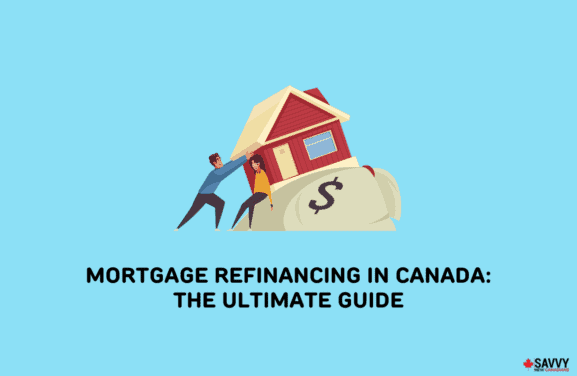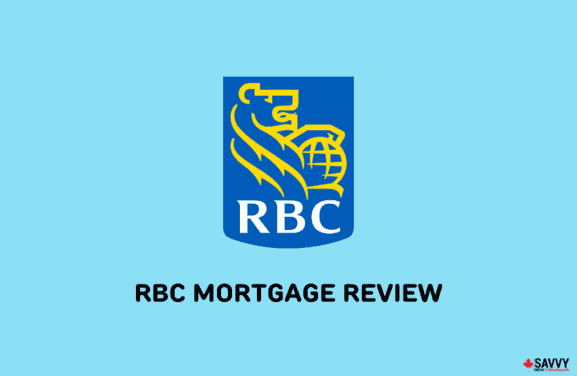Whether you’ve recently bought or owned a home for years, you may want to renovate it at some point.
One option to finance the renovations is a home renovation loan. But what are these, and how can you benefit from one?
This guide covers what home loans are, the different types available, how they work, the pros and cons, and more.
Key Takeaways
- Several types of loans can be suitable if you want to make home renovations.
- These include mortgage refinancing, home equity loans, HELOCs, personal loans, and credit cards.
- They all have pros and cons to consider to help you decide which is right for you.
What Are Home Renovation Loans?
Home renovation loans involve borrowing money to use for renovations on your property.
Many people want to improve their homes to increase the value of their properties. But renovations can be expensive, so getting a renovations loan to cover the cost can make sense.
There are several ways to access credit to renovate your property, and we’ll look at these now.
Best Ways to Finance Home Renovations in Canada
You have several options for financing home renovations in Canada, from applying for a loan specifically to renovate your home to using your credit card to pay for the renovations.
Mortgage Refinancing
Mortgage refinancing is where you refinance your mortgage to borrow additional money that you can use for any purpose, including renovations.
The amount you can borrow will depend on the equity you have in your home. As part of the process, you will normally need to arrange an appraisal to estimate your home’s value.
Pros
- Lower interest rates because you are securing the loan with your property.
- Use the money for any purpose.
- Borrow a larger amount of money to go towards renovations.
Cons
- You are using your home as collateral, so there is a risk of losing it.
- You may need to arrange an appraisal, which takes time and costs money.
- It will take longer to pay off your mortgage.
Related: Rocket Mortgage Canada Review
Home Equity Loan
A home equity loan is similar to mortgage refinancing in that you access equity in your property. But this time, you are simply borrowing a lump sum rather than refinancing your mortgage.
How much can you borrow? It is usually up to 80% of the value of your home, but it depends on how much you still owe on your mortgage.
You then repay the loan with interest over a set amount of time.
Pros
- A good option if you don’t have a great credit score.
- Interest rates are lower than with unsecured loans.
- You can borrow a large amount if you have built up equity in your home.
- Lots of deals to choose from.
Cons
- If you fail to make your payments, you could lose your home.
- Lending requirements can be strict and based on your income and credit score.
- Loans often come with extra fees to pay, including the appraisal fee.
Home Equity Line of Credit (HELOC)
With a HELOC, you are again accessing equity in your home, but you don’t receive a lump sum. Instead, you are given the maximum amount you can borrow, and you then choose how much to borrow and when to use it.
You will need 15% equity in your home, but some lenders require more.
With this revolving line of credit, you borrow what you need and start paying interest on that amount rather than the full amount you can access, making it a flexible option.
Pros
- Low-interest rates.
- Only borrow what you need.
- Only pay interest on the amount you borrow.
- More flexible than other home renovation loans.
- Borrow a large amount.
Cons
- Could lose your property if you default on your payments.
- Fees involved in setting it up.
- Need to have a large amount of equity in your home.
Personal Loan
Personal loans are very accessible, and there are many lenders offering different products.
If you are employed, and you have a good credit score, you should be able to get one. There are also options for people with poor credit, but they are more expensive.
When you take out a personal loan, you receive a lump sum and then pay it back in installments with interest.
Pros
- Quick and easy to arrange.
- Lots to choose from.
- Use the money for anything you want.
- No need to provide collateral.
Cons
- Interest rates are higher than with secured loans.
- May not be able to borrow as much as home equity loans.
- Expensive if you have bad credit.
Loans Canada
Loans Canada is a loan comparison platform for all kinds of personal loans, car loans, debt consolidation loans, and bad credit loans. It has partnerships with some of Canada’s largest lenders and offers free access to your Equifax credit score.
Interest rate: 2.99% to 46.96%.
Loan term: 4-60 months.
Maximum loan amount: Up to $50,000.

Credit Card
Credit cards are one of the most popular ways for Canadians to access credit. They provide a form of revolving credit where you have a maximum limit, and you borrow what you need up to that limit, and you only pay interest on the amount you borrow.
Interest rates are higher for credit cards than the other types of loans on this list. However, they provide a convenient way to finance smaller renovations.
Pros
- Convenient way to access credit for any purpose.
- Useful for smaller renovations.
- Lots of credit cards to choose from, with numerous perks and benefits.
Cons
- Interest rates can be high, making credit cards unsuitable for larger renovations.
How to Get a Home Renovation Loan
Getting a home renovation loan is relatively straightforward, and it starts by comparing the loans available on the market. You can do this in several places, and Loans Canada and LoanConnect are both good starting points.
Consider the type of loan you want based on the options above, and then compare loans. Use a home renovation loan calculator to determine how much it will cost.
Understand what is involved, including how much you must pay back and when.
When you are happy with the loan details, go ahead and apply. You can normally do this online.
You will need to provide the required information, including your personal details, income, home value, ID, etc. You may need to get your home appraised to find out the value.
How to Choose the Best Home Renovation Loan for You
Start by considering the types of loans listed above and decide whether you want a form of revolving credit or a lump sum.
Next, determine how much you need to borrow to carry out the renovations on your home. If you only require a small amount, you may want to use your credit card or take out a small personal loan.
For larger renovations costing tens of thousands of dollars, you might be better off choosing one of the alternative options.
Once you have decided on the type of loan (e.g. a personal loan), search the options available. Compare the loans on the market, check the interest rates, and use a loan calculator to find out how much it will cost you in total.
Keep searching until you find the right option for you that allows you to borrow the amount you need to and get a competitive interest rate.
FAQs
You could potentially use a home equity loan, HELOC, or mortgage refinancing to borrow money for renovations.
Unless they have savings, most people will use some form of financing to pay for their home renovations.
You will often get the best interest rates by using your home as collateral, like when you choose a home equity loan.
It depends on the property and type of renovation you are planning, but generally, renovating is cheaper.



